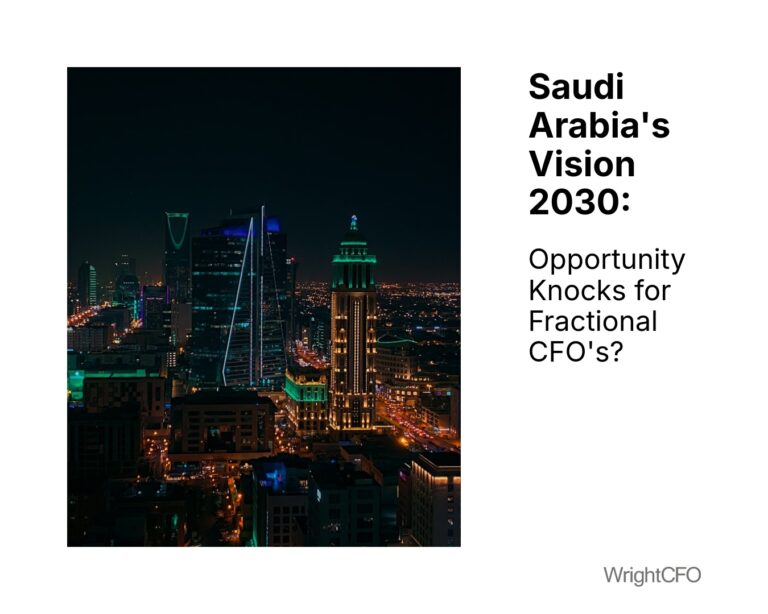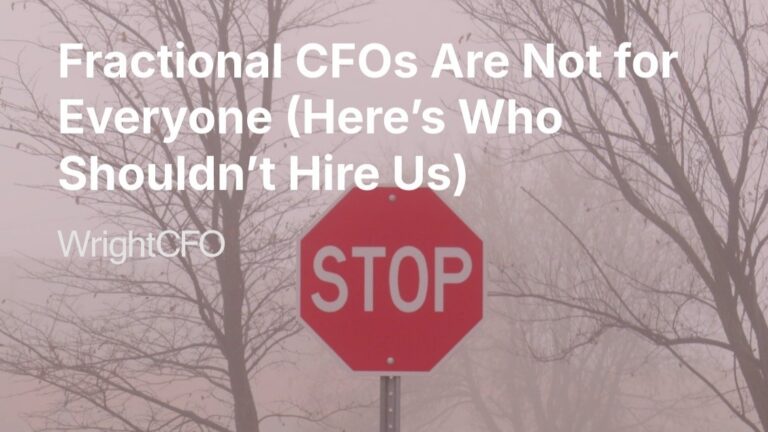Is Your Financial Insight Truly Impartial? The Power of an External CFO Perspective
As the business environment continues to transform—particularly within the active tech, creative, media, and mission-driven not-for-profit sectors we serve—the quality of your financial insight is paramount. It’s the bedrock for strategic decisions, the compass guiding growth, and the safeguard against unforeseen challenges. As a CEO or CFO, you rely heavily on your finance function to provide a clear, accurate, and insightful picture of your organisation’s financial health and future potential.
But have you ever stopped to consider whether that insight is truly impartial?
It’s a sensitive question, of course. Most in-house finance professionals are dedicated, skilled, and committed to their company’s success. However, the very nature of being embedded within an organisation, steeped in its culture, politics, and history, can, subtly or not so subtly, impact the objectivity of financial reporting and strategic advice.
At WrightCFO, we believe that bringing an external, objective perspective to your financial leadership isn’t a luxury; it’s a strategic necessity in today’s complex environment.
The Unseen Challenges of In-House Impartiality
Building a high-performing in-house finance team is essential, but even the best internal functions face inherent challenges in providing completely objective strategic input. Why?
Firstly, the daily demands of the finance function often consume the majority of an in-house team’s time. Processing transactions, managing payroll, chasing invoices, and preparing routine reports – these are critical operational tasks. While essential, they can leave limited capacity for the deep, strategic analysis required for truly objective forecasting, investment appraisal, or risk assessment. As noted in analysis by The Access Group, “Finance Team Structure | Tips & Best Practices”, internal finance teams can get “caught up in day-to-day administrative tasks,” leaving little time for higher-value strategic activities.
Secondly, internal relationships, company culture, and even political dynamics can unconsciously influence perspectives. An in-house CFO, however well-intentioned, operates within a web of established relationships with colleagues across departments, the CEO, and the board. There can be a natural inclination to present information in a way that supports existing strategies, avoids conflict, or aligns with the perceived desires of senior leadership. This isn’t necessarily malicious; it’s a natural human tendency influenced by environment and relationships. Academic research on behavioural biases highlights how factors like ‘confirmation bias’ (favouring information that confirms existing beliefs) and ‘groupthink’ (prioritising harmony over critical evaluation) can affect decision-making within organisations at all levels, including the C-suite (see ACCA, “The various biases in audit”, FCA, “Occasional Paper 24: Behaviour and compliance in organisations”, and Cambridge Judge Business School, “CEOs near hometowns less likely to commit misdeeds”, as well as “A Systematic Literature Review on Overconfidence and Related Biases Influencing Investment Decision Making”). While these studies often focus on audit or broader compliance, the principles of behavioural bias are equally applicable to internal financial analysis and strategic recommendations.
Thirdly, having an in-house team deeply involved in the creation of financial plans and budgets can make it challenging for them to then critique those same plans with complete detachment. Their expertise is invaluable in the creation process, but an external eye can often spot assumptions, risks, or opportunities that those intimately involved might overlook.
The Distinct Value of an External Perspective
This is where the power of an external perspective, particularly from a fractional CFO, becomes clear. An external CFO operates outside the internal pressures and historical context of your organisation. They are not entangled in the day-to-day politics or personal relationships that can subtly influence internal viewpoints. This external positioning inherently fosters impartiality and objectivity.
Here’s how a fractional CFO brings that objective advantage:
- Unbiased Analysis: An external CFO’s primary allegiance is to providing you with the clearest, most accurate financial picture possible. They are not beholden to internal departmental goals or historical practices. Their analysis is driven purely by the financial data and your strategic objectives, free from internal biases that can cloud judgment. As Johnston Carmichael notes regarding outsourcing the fractional CFO role, it “means the business gets an impartial viewpoint with no hidden agenda”. The fractional CFO is not involved in the day to day of the business and can look objectively at how things are working and articulate where improvements could be made.
- Fresh Eyes, New Insights: Having worked with multiple businesses across different sectors (as our team at WrightCFO has, with deep experience in tech, media, creative, and not-for-profit), a fractional CFO brings a wealth of diverse experience and a fresh perspective. They are exposed to various financial models, strategic approaches, and operational best practices. This allows them to quickly identify potential issues or opportunities within your organisation that might be invisible to someone who has been immersed in the same environment for a long time. This cross-pollination of ideas provides valuable, objective insights that can drive innovation and efficiency. Evoke Management highlights that a fractional CFO’s “unique, outside-the-box perspective on your business” can “reveal chances for revenue growth or areas where expenses can be cut, both of which you could have missed”. They will give you a greater advantage to stay ahead of your industry competition.
- A Critical Friend: A good fractional CFO acts as a critical friend to the CEO and the board. They have the distance and objectivity to challenge assumptions, question strategies, and provide unvarnished feedback based purely on financial realities and sound business principles. This isn’t about being negative; it’s about ensuring that decisions are robust, risks are properly assessed, and opportunities are fully understood from a financial standpoint. This independent challenge is vital for avoiding costly mistakes and ensuring sustainable growth.
- Focus on Strategic Value: Unlike many in-house teams who are consumed by transactional tasks, a fractional CFO is specifically engaged to provide strategic financial leadership. Their time is dedicated to high-value activities like financial modelling, forecasting, strategic planning support, and advising on complex decisions like fundraising, mergers and acquisitions, or expansion. This focused attention ensures you receive the deep, objective analysis needed for critical strategic choices. As FundWise highlights, accurate financial analysis plays an “indispensable role in culmination of strategic decisions that steer an organisation on a path of growth and prosperity,” and independent analysis is key to this.
- Experience Without the Entanglement: Fractional CFOs are senior professionals with extensive experience. They have typically held full-time CFO or senior finance roles before choosing a portfolio career. This means you gain access to their years of expertise and strategic acumen without the potential for them to be influenced by internal politics or deeply ingrained historical perspectives. Logros Advisory Partners lists “Objectivity” as a key reason for hiring a fractional CFO/FD, stating that “As external professionals, they can offer unbiased advice and recommendations without being influenced by internal politics or relationships”.
WrightCFO: Your Source for Objective Financial Leadership
At WrightCFO, our team of nine fractional CFOs is built on the principle of providing that crucial external, objective perspective. With our collective experience across tech, media, creative industries, and the not-for-profit sector, we understand the unique financial particularities and challenges you face.
We integrate seamlessly with your existing team, but we maintain the independent viewpoint necessary to provide truly objective analysis and strategic advice. Whether you need support with:
- Developing robust financial models and forecasts.
- Preparing for investment rounds.
- Evaluating the financial viability of new projects or markets.
- Implementing effective cost management strategies.
- Handling complex mergers and acquisitions scenarios.
- Ensuring rigorous financial governance and compliance.
Our fractional CFOs bring the objective insight and strategic expertise your business needs to make informed decisions and achieve its full potential. We pride ourselves on being that trusted external partner who provides clarity and confidence, free from the internal pressures that can sometimes cloud the financial picture.
Don’t let unconscious bias or internal constraints limit your financial insight. Access the power of an objective external perspective.
Ready to gain clear, impartial financial insight to drive your business forward?
We’d be delighted to discuss how a WrightCFO fractional CFO can provide the objective financial leadership your organisation needs.
Contact WrightCFO Today.
This article was originally published here on LinkedIn on 14th May, 2025.










